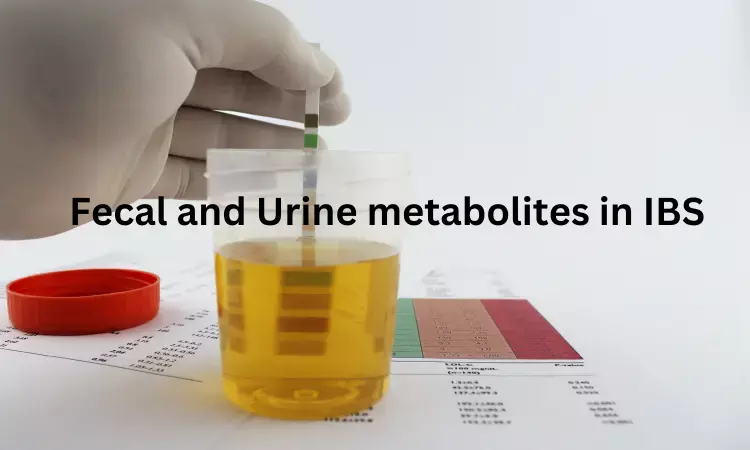- Home
- Medical news & Guidelines
- Anesthesiology
- Cardiology and CTVS
- Critical Care
- Dentistry
- Dermatology
- Diabetes and Endocrinology
- ENT
- Gastroenterology
- Medicine
- Nephrology
- Neurology
- Obstretics-Gynaecology
- Oncology
- Ophthalmology
- Orthopaedics
- Pediatrics-Neonatology
- Psychiatry
- Pulmonology
- Radiology
- Surgery
- Urology
- Laboratory Medicine
- Diet
- Nursing
- Paramedical
- Physiotherapy
- Health news
- Fact Check
- Bone Health Fact Check
- Brain Health Fact Check
- Cancer Related Fact Check
- Child Care Fact Check
- Dental and oral health fact check
- Diabetes and metabolic health fact check
- Diet and Nutrition Fact Check
- Eye and ENT Care Fact Check
- Fitness fact check
- Gut health fact check
- Heart health fact check
- Kidney health fact check
- Medical education fact check
- Men's health fact check
- Respiratory fact check
- Skin and hair care fact check
- Vaccine and Immunization fact check
- Women's health fact check
- AYUSH
- State News
- Andaman and Nicobar Islands
- Andhra Pradesh
- Arunachal Pradesh
- Assam
- Bihar
- Chandigarh
- Chattisgarh
- Dadra and Nagar Haveli
- Daman and Diu
- Delhi
- Goa
- Gujarat
- Haryana
- Himachal Pradesh
- Jammu & Kashmir
- Jharkhand
- Karnataka
- Kerala
- Ladakh
- Lakshadweep
- Madhya Pradesh
- Maharashtra
- Manipur
- Meghalaya
- Mizoram
- Nagaland
- Odisha
- Puducherry
- Punjab
- Rajasthan
- Sikkim
- Tamil Nadu
- Telangana
- Tripura
- Uttar Pradesh
- Uttrakhand
- West Bengal
- Medical Education
- Industry
Faecal and urine metabolites may predict response to low FODMAP diet in IBS Patients

Irritable bowel syndrome (IBS) is a chronic and debilitating functional gastrointestinal (GI), affecting 1.5%-4.1% of adults globally. Altered microbiota and faecal metabolites are part of the pathophysiology of IBS however it is unclear if the changes are a cause or feature of IBS.
FODMAP diet, stands for fermentable oligosaccharides, disaccharides, monosaccharides and polyols, which are short-chain carbohydrates (sugars) that the small intestine absorbs poorly. Certain sugars that may cause intestinal distress. The low FODMAP diet (LFD) leads to clinical response in 50%–80% of patients with irritable bowel syndrome (IBS). It is unclear why only some patients respond.
To determine if differences in baseline faecal microbiota or faecal and urine metabolite profiles may separate clinical responders to the diet from non-responders, researchers in a study published in Alimentary Pharmacology and Therapeutics found that although greater amounts of certain faecal short-chain fatty acids may predict response to a low-FODMAP diet it still needs more studies to validate the same.
Researchers recruited adults fulfilling Rome III criteria for IBS to a blinded randomised controlled trial. Patients were randomised to sham diet with a placebo supplement (control) or LFD supplemented with either placebo (LFD) or 1.8 g/d B-galactooligosaccharide (LFD/B-GOS), for 4 weeks. Clinical response was defined as adequate symptom relief at 4 weeks after the intervention (global symptom question). Differences between responders and non-responders in faecal microbiota (FISH, 16S rRNA sequencing) and faecal (gas–liquid chromatography, gas-chromatography mass-spectrometry) and urine (1H NMR) metabolites were analysed.
The key findings of the study are
• At 4 weeks, clinical response differed across the 3groups with adequate symptom relief of 30% (7/23) in controls, 50% (11/22) in the LFD group and 67% (16/24) in the LFD/B-GOS group (p = 0.048).
• In the control and the LFD/B-GOS groups, microbiota and metabolites did not separate responders from non-responders.
• In the LFD group, higher baseline faecal propionate (sensitivity 91%, specificity 89%) and cyclohexanecarboxylic acid esters (sensitivity 80%, specificity 78%), and urine metabolite profile (Q2 0.296 vs. randomised −0.175) predicted clinical response.
Researchers concluded that "Baseline faecal and urine metabolites may predict response to the LFD". Further research is needed to identify and understand the microbial and metabolomic profiles of patients with IBS who participate in these therapies.
Reference: Bridgette Wilson, Tokuwa Kanno, Rachael Slater, Megan Rossi, Peter M. Irving, Miranda C. Lomer, Chris Probert, A. James Mason, Kevin Whelan; Faecal and urine metabolites, but not gut microbiota, may predict response to low FODMAP diet in irritable bowel syndrome 14 June 2023; DOI: https://doi.org/10.1111/apt.17609.
MSc. Neuroscience
Niveditha Subramani a MSc. Neuroscience (Faculty of Medicine) graduate from University of Madras, Chennai. Ambitious in Neuro research having worked in motor diseases and neuron apoptosis is interested in more of new upcoming research and their advancement in field of medicine. She has an engrossed skill towards writing and her roles at Medical dialogue include Sr. Content writer. Her news covers new discoveries and updates in field of medicine. She can be reached at editorial@medicaldialogues.in
Dr Kamal Kant Kohli-MBBS, DTCD- a chest specialist with more than 30 years of practice and a flair for writing clinical articles, Dr Kamal Kant Kohli joined Medical Dialogues as a Chief Editor of Medical News. Besides writing articles, as an editor, he proofreads and verifies all the medical content published on Medical Dialogues including those coming from journals, studies,medical conferences,guidelines etc. Email: drkohli@medicaldialogues.in. Contact no. 011-43720751


